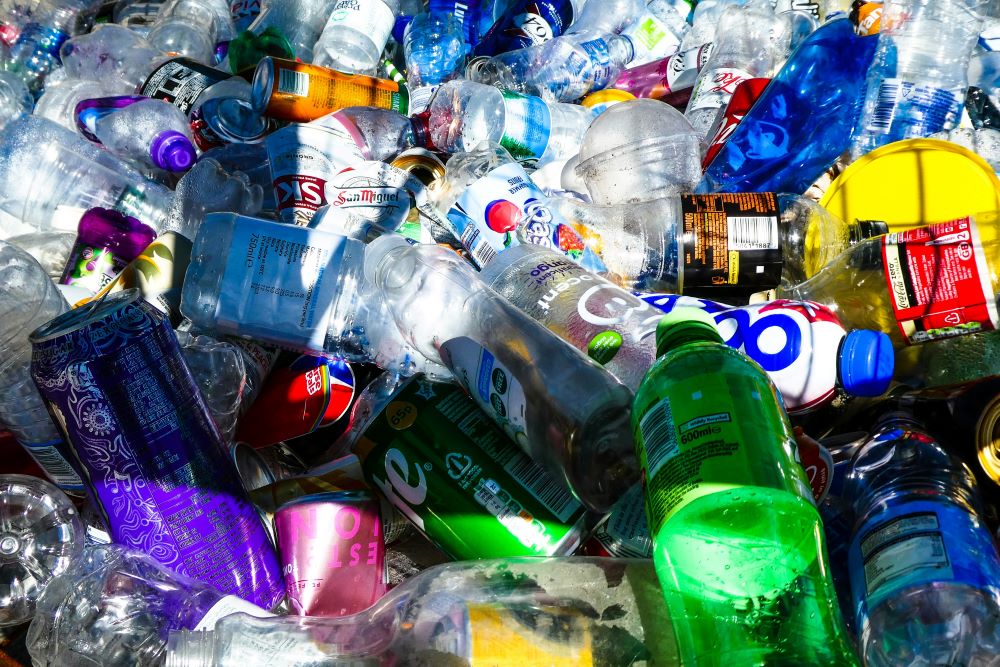
(Unsplash/Nick Fewings)
Editor's note: This pastor's message was originally published in the Assumption Church, Chicago, bulletin for April 14, 2024. It has been edited and republished at EarthBeat with permission.
About 20 years ago, Bob Greene, then a columnist for the Chicago Tribune, wrote a little book called Once Upon a Town. It was about a canteen that the citizens of North Platte, Nebraska, operated during World War II. Most soldiers heading for the Pacific on troop trains passed through North Platte on the Union Pacific Railroad. Because North Platte was a crew change point on the Union Pacific, the train stopped there for 10 minutes.
Beginning on Christmas Day 1941 and continuing until the end of the war in 1945, a group of volunteers met every troop train passing through North Platte and passed out egg salad sandwiches, a piece of cake and fresh hot coffee. The coffee was served in glass mugs.
At the next stop up the road, the cups were collected and sent back to North Platte on the next train east. The cups were washed by hand and then employed again on the next troop train going west.
An average of 3,000-5,000 military personnel passed through North Platte daily, so washing all those cups was very labor intensive. It would have been easier if they had used Styrofoam cups, but Styrofoam plastic cups did not come on the market until 1960.
Undoubtedly the widespread use of plastic has made life easier ... The problem is that plastic is not good for our planet.
Undoubtedly the widespread use of plastic has made life easier and made many products less expensive and therefore within the reach of more people. Plastic is heavily used in packaging, but can also be found in our clothing, our kitchens, our automobiles, our toolboxes, our toys and sports equipment. The problem is that plastic is not good for our planet.
Because plastic does not occur in nature, it does not decompose the way other discards do. Plastics take anywhere from 20 to 500 years to decompose. It is estimated that a disposable diaper will be around for 500 years; a plastic water bottle for 450 years; a sandwich bag for 20 years; and a Styrofoam cup for 500 years.
Millions of tons of plastic end up in our oceans. On top of that, plastic comes from petroleum. Producing plastics emits up to 213 million metric tons of greenhouse gases — a major source of global warming — each year.
Finally, with all this plastic in our lives, we (along with other creatures) are ingesting tiny particles of plastic in the air and water, which is not natural for our bodies either. When we drink from those ubiquitous plastic water bottles, we ingest twice as much plastic than when we drink a glass of tap water from a glass.
And we are producing more and more plastic. In 1950, we produced 2 million metric tons worldwide. Between 2010 and 2020, we went from 270 million tons to almost 370 million tons. At the present rate we will be at 590 million tons by 2050. Convenience and low cost come at a price, a price that we may not be able to pay in the future.
That is why as we approach Earth Day 2024 (April 22), plastic has become a focal point of the environmental movement. Almost 10 years ago in Laudato Si', Pope Francis broke new ground when he declared care of creation a moral issue. His point is that "everything is connected."
As our relationship with our creator has been neglected, human relationships have faltered, and our world has grown hotter, less stable and more lifeless. As a result, we all suffer, and the poorest and most vulnerable suffer most of all.
Francis called for an "ecological conversion" in which we renew our love for everything that God has created and the home we share with all of God's creatures. He also called upon all Catholic institutions to undertake some practical action on behalf of our common home.
Assumption Church, like many other parishes in the Archdiocese of Chicago, will send delegates to one of three regional gatherings to pray, reflect and discuss a platform for action for the archdiocese. Here at Assumption, a smaller group from around the archdiocese will meet to pull the findings from these regional meetings into a unified plan.
A special ecumenical service at Holy Name Cathedral will celebrate the installation of the Chicagoland Christians United for the Care of Creation Declaration, which has been signed by 13 Christian leaders from various denominations. The document says in part, "Because we are made in the image of God and because God loves and cares for creation, we must also care for our common home. To do otherwise is sin."
Advertisement
Of course, getting away from our heavy use of plastics in real life is going to be difficult. The oil companies, alarmed that the market for electric vehicles might actually take off, are investing billions in producing plastics.
And even on the parish level, we have discovered that some of the recyclable paper cups labeled for hot beverages can be leaky. Styrofoam works great. It is just that the joyride may be over.








